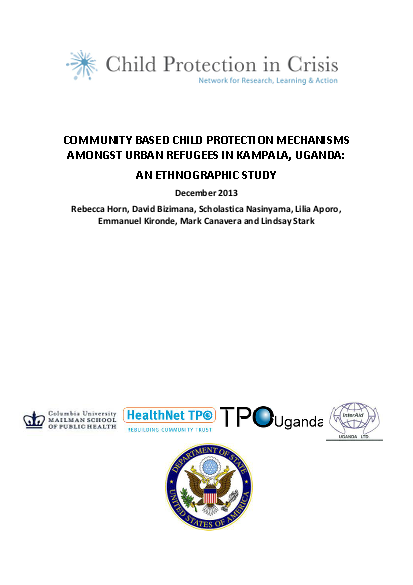
Many countries are currently undertaking mapping of community based child protection mechanisms (CBCPMs) as a critical step in strengthening child protection systems. However, this type of mapping has yet to be undertaken in refugee settings. This project, which includes research in Kampala, Uganda, and in Rwandan refugee camps, is the first study of CBCPMs undertaken in refugee settings.
The purpose of the study reported here was to learn about community-based child protection processes and mechanisms in three urban refugee communities in Kampala, Uganda. In particular, the research sought to identify what urban refugees see as the main harms or risks to children, what CBCPMs exist and how they are used, what protective factors enable children’s positive coping and resilience, and whether and how the CBCPMs link with elements of the formal, government led aspects of the national child protection system. This study had a special focus on the protective effects of education. By learning about child protection amongst urban refugee communities, the research aimed to contribute to new knowledge that will be useful in strengthening both the child protection system and services provided to refugees in Uganda.
Resource collections
- UN Habitat - Urban Response Collection
- Urban Response - Urban Crisis Preparedness and Risk Reduction
- Urban Response Collection - Community Engagement and Social Cohesion
- Urban Response Collection - Economic Recovery
- Urban Response Collection - Environment and Climate Change
- Urban Response Collection - Housing, Land and Property
- Urban Response Collection - Urban Crisis Response, Recovery and Reconstruction
- Urban Response Collection - Urban Resilience